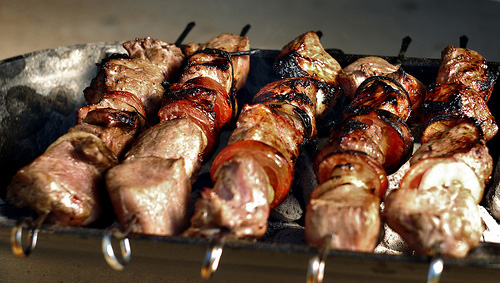Today’s word of the day is qualtagh, defined by The Century Dictionary as a Christmas or New Year’s ceremony on the Isle of Man, or one who takes part in the ceremony. The dictionary quotes Creegen’s Dictionary of the Manx Language, which says more completely: “The first person met on New Year’s Day, or on going on some new work &c. A company of young lads or men, generally went in old times on what they termed the Qualtagh, at Christmas or New Year’s Day, to the house of their more wealthy neighbours; some one of the company repeating in an audible voice the following rhyme:
“Ollick ghennal erriu as bleïn feer vie,
Seihll as slaynt da’n slane lught thie;
Bea as gennallys eu bio ry-cheilley,
Shee as graih eddyr mraane as deiney;
Cooid as cowryn, stock as stoyr.
Palchey phuddase, as skaddan dy-liooar;
Arran as caashey, eeym as roayrt;
Baase, myr lugh, ayns uhllin ny soalt;
Cadley sauchey tra vees shiu ny lhie,
As feeackle y jargan, nagh bee dy mie.
“When this was repeated they were then invited in to partake of the best that the house could afford.”
Merry Christmas in Manx is “Ollick ghennal ” or “Nollick ghennal.” More about folklore about qualtagh can be be found in the The Folk-Lore of the Isle of Man.
